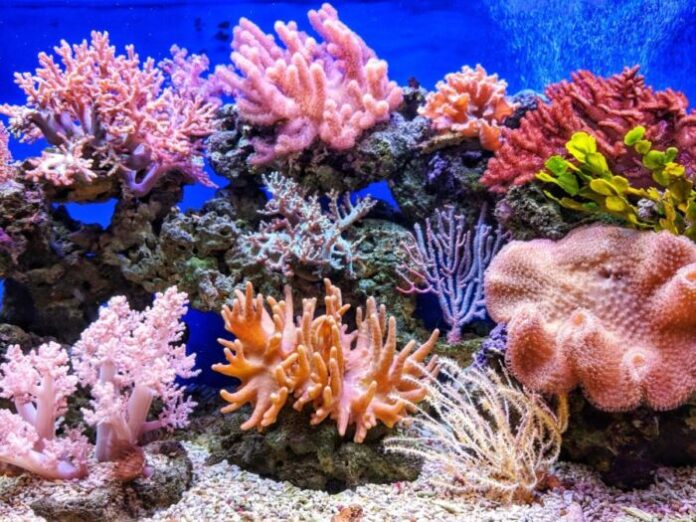
Exposing yourself to the sun correctly is essential to avoid the risk of melanoma, but not all sunscreens are safe for our skin and, above all, for the environment. The chemicals contained in solar products, in fact, contribute to the bad health of corals all over the world.
The situation, in numbers, is alarming: every year 14,000 tons of sunscreen end up in the oceans; 82,000 substances contained in personal care products that arrive in the water, preventing or slowing down the growth of the coral.
Many sunscreens are composed of chemical substances such as benzophenone, oxybenzone, homosalato, octocrylene, ingredients of synthetic origin derived from oil, which are harmful not only for your health but also for the environment. The first thing to do when buying a solar is to read the INCI, carefully avoiding buying those that contain the components mentioned above.
The most common creams protect the skin thanks to chemical filters, that is a sort of artificial melanin that blocks UVB rays, preventing them from being absorbed by the skin and intervening on our hormonal balance. These ingredients can cause irritation, especially in the most sensitive skin, even leading to allergy and eczema.
The damage caused to the environment is no less serious. When we bathe with sun cream, chemical compounds such as oxybenzone, benzophenone, cinnamate or PABA, end up in water and are absorbed by corals, compromising their ability to reproduce and their growth cycle and causing their whitening. Absolutely avoid the spray cream, which ends up on the sand and is captured by the ocean.
What is the solution then? Stop using sunscreen? Of course not. In fact, there are solar products that are not harmful to the oceans and which at the same time ensure the right protection against UV rays. The recommendation is to choose natural products that contain physical and biodegradable filters, able to protect the skin and the marine ecosystem. The ideal is to use sun cream friendly to coral reefs, without oxybenzone, mineral based that are formulated with zinc oxide or titanium dioxide, particles that are not ingested by corals.
Alongside ecofriendly sunscreens, it is also good to adopt other measures to protect yourself from the sun and, at the same time, safeguard the environment. Among the rules that are always valid there are wearing hats, t-shirts and other items with UV protection, avoid exposing yourself in the hours when the sun is stronger, choose areas of shade to play and bring an umbrella with you.
Hawaiian legislators were the first to protect marine ecosystems and the coral reef. On May 1, 2018, they approved a bill that banned the sale of sunscreen containing oxybenzone and octyl methoxyinnamate, another harmful chemical compound. Hawaii is the first state to have approved a similar measure, which could become law by January 1, 2021.
Even the small island nation of Palau, a pristine archipelago that is home to one of the largest marine reserves on the planet, has announced that it would have banned the sale and use of sunscreens containing dangerous chemical compounds for corals.
The destruction of coral reefs would not only mean a great deal of damage to the marine ecosystem and to the planet, but would also entail serious repercussions on the economy of many countries, where diving holidays and snorkeling attract thousands of tourists every year.



































